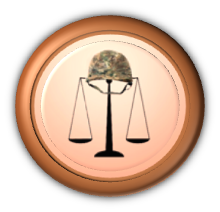Why Support Veterans Treatment Courts?
The first veteran’s treatment court was established
in 2008 by Judge Robert T. Russell of the Erie County Court in Buffalo, NY. In 2009, Judge Russell described why he saw a
need for veterans treatment courts, which are essentially modeled on successful
drug courts created to treat individuals suffering from addiction:
“Many
veterans are known to have a warrior’s mentality and often do not address their
treatment needs for physical and psychological health care. Many are homeless,
unemployed, helpless, and in despair, suffering from alcohol or drug addiction,
and others from serious mental illnesses. Their lives have been spiraling out
of control…The first veterans court in Buffalo was a response to the growing
number of veterans appearing on their mental-health and drug-treatment-court
dockets. It became apparent that these
traditional treatment courts were limited in fully serving the veteran
population.”
Most veterans are strengthened by their
military service, but the combat experience has left a growing number of
veterans with a mental health disorder or cognitive impairment. One in five Iraq
and Afghanistan Marine and Army war veterans has symptoms. And research continues
to draw a link between substance abuse and combat–related mental illness. One
in six veterans who served in Operation Enduring Freedom (Afghanistan) and
Operation Iraqi Freedom suffers from a substance abuse issue. Left untreated,
mental health disorders common among veterans can directly lead to involvement
in the criminal justice system.
The veterans treatment court model requires
regular court appearances; a bi-weekly minimum in the early phases of the San
Diego program is one example. The veterans treatment court model also requires
mandatory attendance at treatment sessions and frequent and random testing for
substance use, both for drugs and alcohol.
Given their past experiences in the armed forces, veterans respond
favorably to this structured environment.
Without structure and adherence to a treatment plan that addresses the
underlying cause of their behavior, these veterans will very likely reoffend
and remain in the criminal justice system. Community safety will be jeopardized
by future crime and victims. Suicide
risk during this untreated cycle is occurring at record levels in Iraq and
Afghanistan veterans. The veterans treatment court is designed to stop this
cycle, restore the veteran to their previous law abiding status and ensure they
meet their obligations to themselves, the court, and their communities.
Communities are also strengthened and resources
saved by having veteran-defendants in treatment combined into a single cohort
while their probation is managed by a knowledgeable team of specialists. Because a veterans treatment court judge
handles numerous veterans' cases and is supported by a strong,
interdisciplinary team, he or she is in a much better position to exercise
discretion and respond more effectively than a judge who only occasionally hears
a case involving a veteran-defendant. A
veterans treatment court judge and court support team understand the issues
that a veteran may be struggling with, such as Post-Traumatic Stress, Traumatic
Brain Injury, and Military Sexual Trauma.
A veterans treatment court judge is also more familiar with the Veterans
Health Administration, Veterans Benefits Administration, State Department of
Veterans Affairs, Veterans Service Organizations, and volunteer veteran-mentors,
and how each can assist veterans before the court.
Veterans treatment courts are tapping into
the unique aspects of military and veteran culture and using it to the benefit
of the veteran. Through these unique
courts, those who served in our nation’s Armed Forces are allowed to
participate in a treatment court process with their fellow veterans,
re-instilling a sense of camaraderie that they felt while in the military.
Indeed, the veterans treatment court is similar to the military unit: the judge
becomes the commanding officer, the veteran-mentors become fire team leaders,
the court team becomes the company staff, and the veteran-defendants become the
troops. For those who have spent any
time in traditional criminal courts, a visit to a veterans treatment court is
somewhat of a revelation. Veteran
defendants are standing before the judge at parade rest, saying “Yes,
ma’am/sir” or “No, ma’am/sir,” and there is interaction with and support from
their fellow veterans.
Veterans treatment courts act as a “one-stop
shop,” linking veterans with the programs, benefits and services they have
earned. For example, the VA Veterans Justice Outreach Specialist, or VJO, is
present during the court docket and able to access confidential medical
records, make treatment appointments, and communicate this information to the
court. Treatment providers on the court
team are present to provide information on the veterans’ progress in
treatment. Specially trained community
resource specialists familiar with organizations that provide support in court
programs, treatment and employment resources help restore the veteran to
wholeness and provide accountability. The
Veterans Benefits Administration may participate to ensure that veterans
receive disability compensation, and education and training benefits. Veterans
service organizations and State Departments of Veterans Affairs assist veterans
with additional local and state resources, while volunteer veteran-mentors
provide morale and motivational support.
These team members are not employed by the criminal justice system and
normally would not be present at the courthouse. Consolidating justice-involved veterans onto
a single docket permits these individuals to actively support those in need of
their help.





